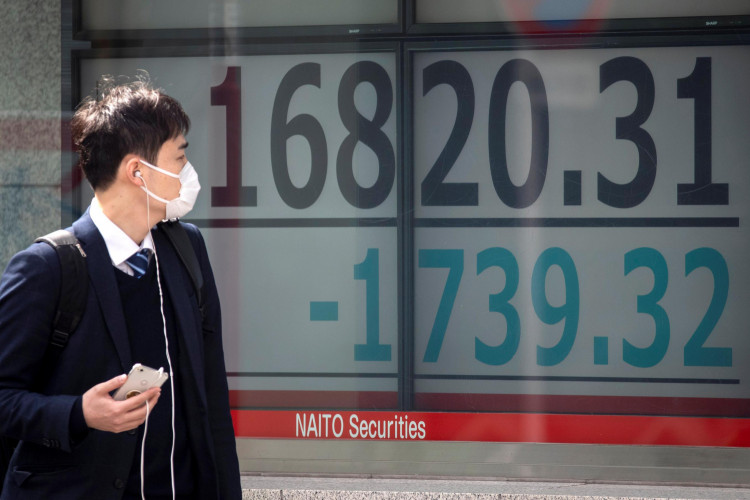After the strongest session for US stocks in nearly a dozen years, stocks in Asia rallied, with investors rediscovering some risk appetite as Congress negotiates an emergency spending bill.
Even so, the U.S. futures declined; since the first half of February, American - and global - equities have not reported back-to-back gains every day.
Indexes in South Korea, Hong Kong and Australia have climbed more than 3 percent for now, and Japan has risen 5 percent, since Tuesday's S&P 500 soared more than 9 percent.
In a preliminary sign of reduced funding pressures, the dollar extended falls toward both established and emerging currencies. The treasuries so far had been out of the red zone.
Asian stock markets rose after the US Federal Reserve vowed assistance to the struggling economy as Congress postponed action on a $2 trillion aid package for coronavirus.
Market indices rose nearly 7 per cent in Tokyo and South Korea, while markets in Shanghai, Hong Kong and Australia also climbed.
The central bank's promise to purchase as many Treasuries and other assets as required to keep financial markets running attracted traders.
Currently, the US Congress is at loggerheads on the $2 trillion assistance package for coronavirus. House Republicans have accused the Democrats of adding needless changes to the legislation.
Although the Democrats have protested that the legislation is not going far enough, there are hopes that talks that lasted through the night will require approval of the bill on Wednesday.
Asian investors like what they see from an all-in central bank move that is perceived to give the economy a badly need boost as the U.S. congress tackle measures to figure out how to contain the sinking financial market, analysts said.
In Tokyo the Nikkei 225 rose 6.7 percent to 18,009.50 and Seoul's Kospi fell 6.9 percent to 1,585.46. The Shanghai Composite Index was up 1.7 percent to 2.706.80.
At 22,513.69, the Hang Seng in Hong Kong was 3.8 percent higher, and at 4,677.70, the S&P-ASX 200 in Australia gained 2.9 percent.
The Japanese yen traded at $110.90, up 0.3 percent. The offshore Chinese yuan was pegged at $7,0746, up 0.2 percent. The euro reached $1,0799, up 0.1 percent. The yield on 10-year bonds went down to 0.84 percent. Australia's 10-year bond yield rose to 0.97 percent by eight basis points.
Meanwhile, economists are gradually suggesting the recession is imminent. Analysts are cutting their forecasts for potential corporate profits. Forecasters warn they can't predict the extent of the slowdown, or how long it will last.





